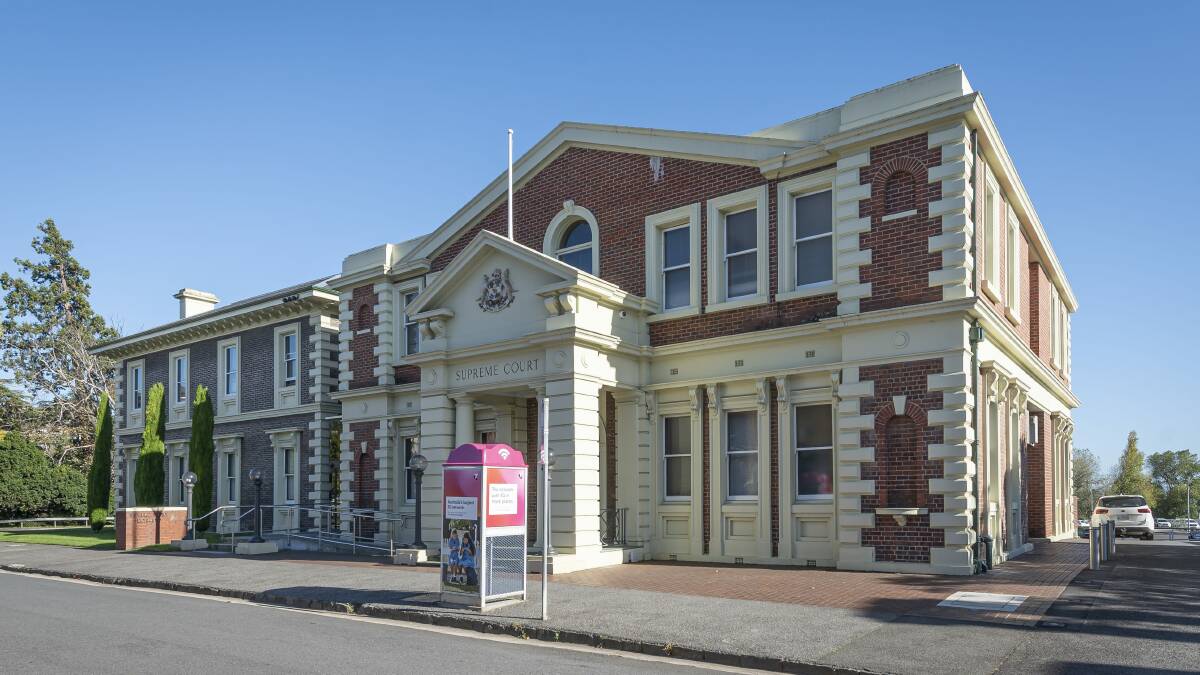
A record-high Supreme Court backlog of 692 cases is prompting people charged with criminal offences to lodge an increased number of bail applications, the Director of Public Prosecutions says.
Subscribe now for unlimited access.
$0/
(min cost $0)
or signup to continue reading
In his annual report, Daryl Coates SC said the backlog of cases on June 30 this year compared with 691 the year before. A blowout in the number of cases in Burnie from 168 to 222 was a major cause of the increase.
Although the new judge's position was advertised in February, Tamara Jago was not appointed until September. The list in Launceston decreased from 187 to 169 despite the month-long murder trial of Jack Harrison Vincent Sadler in May.
The backlog increased when a decreased number of committals, 551 compared with 594 the year before, was offset by a fall in the number of criminal prosecutions 514 compared with 594 the year before.
"Although it is pleasing that the pending list did not [significantly] increase, it will take substantial effort and resources to reduce it," Mr Coates said. The increase came despite a boost in government funding from $9.3 million to $10.1 million.
"It is pleasing that the government has provided increased funding in the current budget to assist the sexual assault and family violence unit in this Office which has been under considerable pressure," Mr Coates said.
The increasing number of matters, often of increasing complexity, placed the office under pressure.
Law Society of Tasmania president Simon Gates said there was no immediately apparent explanation for the continued large backlog, but that the state's three acting judges and the appointment of Ms Jago would assist.
He said changes to the Justice Miscellaneous (Court Backlog and Related Matters) Act on July 1 delivered significant changes for the day-to-day practice of criminal law in the Magistrates Court and Supreme Court.
"In addition to an increase in the value thresholds under the Justices Act, a number of 'mirror' summary offences have been introduced to act as alternatives to indictable matters where appropriate," he said.
"These new offences provide opportunity for negotiation with police and/or the DPP in relation to current and future matters and may see a shift in the number of cases requiring determination in the Supreme Court.
"If an accused or complainant has to wait years to have their matter resolved then of course we are concerned about that.
"The delay often causes unintended consequences including hardship for victims and their families, witness fatigue and undermining public confidence in the criminal justice system's ability to delivery justice in a timely fashion."
Mr Coates said bail applications had jumped to 482 in 2020-21 compared with 244 in 2015-16. "The increase in applications is likely due to a number of factors, including the backlog and an increase in the number of persons charged with serious crimes," he said.
The long delay before trial is frequently cited in courts as a factor in consideration of bail.
READ MORE: Actor David Dalaithngu dies aged 68
The report detailed a massive increase to $845, 650 in seizures under the Crime (Confiscation of Profits) Act compared with $262,043 last year.
The figure includes $733,000 of unexplained wealth including tainted property which can be seized without conviction.
"Over the past six years orders have been made under the Act totalling $4,696,235," Mr Coates said.
Our journalists work hard to provide local, up-to-date news to the community. This is how you can continue to access our trusted content:
- Bookmark www.examiner.com.au
- Make sure you are signed up for our breaking and regular headlines newsletters
- Follow us on Twitter: @examineronline
- Follow us on Instagram: @examineronline
- Follow us on Google News: The Examiner


